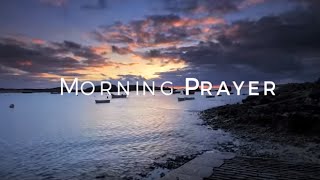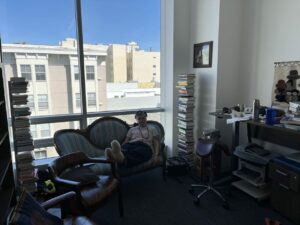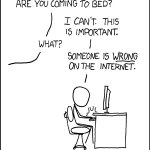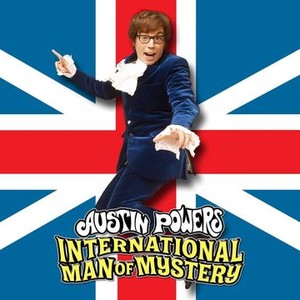
Every January, lots of people I know (and lots more whom I don’t know) resolve to be better in a variety of ways. Some of these have to do with adopting healthier habits: meditating every morning or every night, listening to some app, reciting affirmations, dunking oneself in an ice bath, getting one’s workout out of the way, drinking or eating something good for us, you name it. The Internet is brimming with advice about these various things, pouring out arguments for an against this ritual or other.
The Talmud Bavli opens with a tractate about the whens and hows of the different blessings, and its first page deals with the question of timing the “shma” blessing, the one many believing Jews recite morning and evening as part of their daily prayer structure. The Jewish day, just like the day in many religions, belief systems, and communities, is rather regimented with habits, and it looks like the conversation between the Talmudic teachers focuses on the best timing for the habits. These suggestions are remarkably fresh in their reasoning–they sound a little bit like a group of health hackers debating the exact timing and components of drinking their bullet coffee or taking their supplements.
Some scholars tie the blessing to the early temple days (long in the rearview mirror when this was written), linking its timing to the timing of sacrifices in the temple. Some, like Raban Gamliel, tie them to the natural world (debating the timing of sunrise.) And some seem to set a deadline for the blessing–midnight–to distance the person from evildoing.
This plan–tying virtuous behavior to a certain hour at night to prevent oneself from drifting into, well, less virtuous behavior–speaks to a dispute that pops up once in a while in criminal justice policy: to what extent is criminal behavior situational? Take a look, for example, at San Jose’s teenage curfew policy: Under a city ordinance, a person under the age of 16 cannot be in a public place within the City of San Jose without adult supervision between the hours of 10:00pm and 5:00am. Minors who are 16 or 17 years old cannot be in a public place within the city without adult supervision between the hours of 11:30pm and 5:00am.
Can one get into trouble at noon, or at 3pm, or at 5pm? Sure (indeed, many of those who balk at the puritanism of U.S. sex education point out that, if one prevents their teenager from having sleepovers with their partners, they’ll have sex in the daytime, in cars or in other places, arguably less safe and with less disclosure to the adults in the teenager’s life.) But then there’s opportunity theory, which claims that offenders make rational choices and thus choose targets that offer a high reward with little effort and risk. Nighttime creates opportunities and risks that are not present during the day.
I should know: twice a week this semester required an early morning BART commute with my bicycle. In the last few years, there is a lot more visible suffering on the train, and the hour of travel makes an important difference: the early morning features a lot of the aftermath of whatever bad things happened during the night. It’s not rare to see people injured (sometimes profusely bleeding) on the train; fights; exhausted folks sleeping, eating, and eliminating unhygienically on the train, on the platform, or in the elevators; and sometimes outright scary and dangerous activity, like people lighting up joints inside a closed train car. Most people on the train try to ignore this stuff even when it’s flat-out hazardous, because who wants to get in trouble, but sometimes our determination to mind out own beeswax has horrendous consequences.
This is what happened last Wednesday. I was on my way from Berkeley to San Francisco on the early afternoon train. At some point, I realized that the man sitting close to me was not breathing. He seemed pale. I asked the other passengers whether they had seen him breathe or move. No one had. I tried to touch the man. “Don’t do it, he’ll jump at you” someone said. “Junkie sleep,” someone else chuckled. But no. The man was dead. He was in his twenties, with a head full of curly hair like my son’s, wearing clothing that was somewhat disheveled (but who doesn’t look disheveled on BART?). For all I know, he might’ve ridden the train from the early morning hours, or even slept on it, and died at some point in the morning, continuing to ride unnoticed by the people around him. What happened to him–overdose, cardiac arrest–is anyone’s guess. He was found in the daytime. Did it happen at night? I’m not sure.
I’ll write more about my dead fellow passenger in the weeks to come – finding him was deeply saddening and unsettling and made me think of many ways in which our communal spirit needs an infusion of fresh compassion. But for today, this incident is relevant not only in that it raises the question of whether bad things happen at night, or early in the morning, but also in that it provokes the question, how we can leverage our habits and attention to meet each day (even on BART) with a larger reserve of compassion for others.
The next part of the mishna deals with the morning blessings, and it looks like the New Agey idea that you create your own reality by setting the tone for your day is not all that new. Brachot 1 offers us two approaches on when to punch the Shma prayer card. Shammai is all about consistency: make sure you say your blessing as you get up and as you go to sleep. Hillel, always the mellower of the two, is all about “just make sure it happens at some point during the day.” I’m generally part of the Hillel crew (big shocker there, I’m sure), but this time, I gotta say, I can see the logic in Shammai’s prescription, as I have (forgive the tiresome idiom) some lived experience in this department.
On the early morning commute days, I usually start my day in one of three ways: praying and singing (I created a morning blessing playlist with a meditative component), listening to classic literature (something I’ve read many times before, like Jane Austen), or listening to a true crime podcast. The podcasts are very engaging and I feel a strong pull to dive into these horrendous stories, but I’ve noticed that, when I do that first thing in the morning, I spend the rest of the day in a mental fog, and am somewhat more watchful and suspicious of people around me. I don’t think serious crime does not exist. It is definitely a part of reality. But I do think that disproportionately inclining my mind toward these scary and traumatizing scenarios does set a more somber tone to my day. The best of the three commute beginnings is the one that involves praying, singing, and meditating, but it definitely requires setting a habit.
Which is where being secular can be a bit difficult and, at the same time, freeing. When you read the Talmud as a follower of orthodox theistic edicts, you pray in the morning, or at night, or both, because your wise ancestors said you should. When you read it as a freethinking secular person, you are the boss of you, and you decide if and when to pray based on what, if anything, it contributes to your life. If that’s the case for you, you have the freedom and the responsibility to figure out which of your habits takes you in a direction you appreciate. Would we all be quicker to detect a fellow passenger in medical distress on the train if we took a moment in our busy morning–a clearing in the dense forest of our lives–to incline our mind toward compassion and caring?




No comment yet, add your voice below!